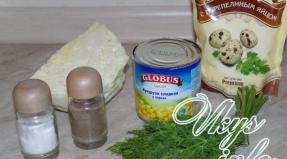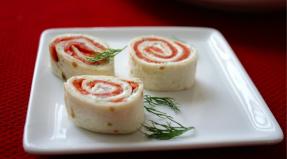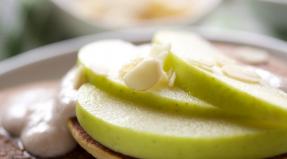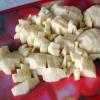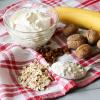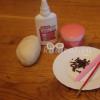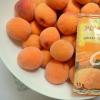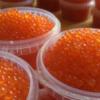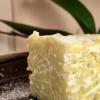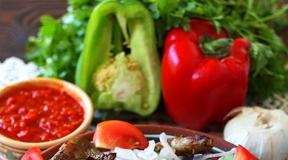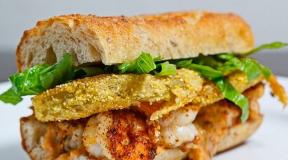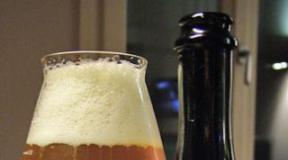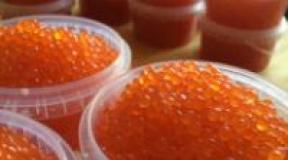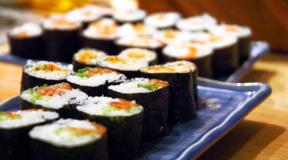Strategic products. Supply stocks - what is kept and how long? Household chemicals stock in crisis
Many things and actions are peculiar to humans, which resemble some behavior of wild animals. For example, creating a strategic stock of products. This subconscious habit of having in stock a certain arsenal of food and some other goods often saved people in difficult times. What do they buy in reserve? We will try to answer this question.
Minimum stock, or how to save
All people are different, and what they buy in reserve is different. For some, the accumulation of strategic reserves becomes a mania. And for some, this is just a necessary supply of food. However, there is a certain recommended list of things and products that it is desirable to have in stock.
Modern life is an eternal lack of time and energy for housekeeping. It is in order to have the opportunity to cook a delicious lunch or dinner at home, to meet unexpected guests, in case of illness, you must always have the necessary food on hand. In this case, you must follow the rules and terms of their storage. Of course, first of all, when buying a stock, you need to take care in advance about the place, conditions and duration of storage.

Only products with a long shelf life can be purchased for future use without risk to life and health, without losing their quality. Otherwise, the whole point of the stock is lost. After all, thrifty people are thrifty, but if there is no savings, and the entire stock turns into a pile of spoilage, then in this case it is not worth making this stock.
Stock types
There is a grocery stock and a general one. The food supply includes essential foodstuffs. In general - basic household items, such as medicines, personal hygiene products, detergents and
Food is the most expensive item in the family budget. To minimize daily food costs, you should create a supply of food for all family members, replenishing it as you use it. There are practically no housewives who do not make any household supplies. Products purchased in advance and some blanks are already the minimum required stock of products, which will help to save money in the future.
Sources of receipt of products
There are several sources of receipt for products in stock. They can be classified as:

Seasonal blanks
Seasonal preparations are a stock of some products for the winter and spring. Everything that the hostesses and owners collected and purchased from seasonal products, and subsequently rolled up, dried or frozen, will be an excellent help in winter and spring. The larger the stock, the longer it will last. The terms and conditions of storage of products prepared for the season allow them to be stored and used for a long period. So, homemade preservation can be stored for 2 or 3 years. The cheapest seasonal products that are bought in reserve are a good investment of the family budget.
Occasional blanks
Sometimes people accidentally shop in reserve. Promotions, discounts, sale of "deposits" - all this affects the buying activity. Favorable prices are conducive to the purchase of goods in small wholesale. Of course, these are unplanned expenses, but they then pay off. The main thing is to get necessary products, and not cheap nonsense. It is imperative to pay attention to the shelf life and sale of products sold under the promotion. Often, sales for are held on the occasion of their expiration date. Therefore, you need to be careful, you cannot put expired products in stock.

Planned blanks
Permanent procurement of stock of products for future use is done in a controlled and planned manner. Everything is decided in advance. Usually a list is made and the stock is updated regularly. Such a stock includes products that are used constantly. Each person decides for himself what he needs for life and what not.
There is also a so-called "strategic reserve" - in case of a deterioration in the financial situation of a family or a deterioration in the economy in the country, the onset of a crisis. These reserves will help to hold out in difficult times without starving. You can use such a stock in the event of a sharp jump in prices during a financial crisis, during a period of cataclysms, hostilities or loss of livelihood. What goods are bought in reserve in this case? This list includes foods and essentials. Having such products in the required volume, you don't have to worry about random troubles. Just do not forget to update stocks.

List
Here is a list of what products are bought in stock:
- finely ground wheat flour;
- whole cereals, various;
- rafinated sugar;
- natural honey;
- dairy, fish, vegetable, stew, jam, salads, condensed milk, pates, fish, etc.
- milk powder and;
- durum flour pasta;
- vegetable oil;
- salt;
- condiments and spices;
- tea and natural coffee;
- alcohol;
- long-term storage vegetables: potatoes, onions, garlic, carrots, cabbage, beets;
- baking soda and vinegar;
- nuts.
Flour
Flour is essential in those families where they often bake. This product has a long shelf life, but flour cannot be stored for more than 12 months. Otherwise, it loses its taste and nutritional qualities. The ideal period for renewing the flour stock is six months. The optimal stock is 50 kilograms.
Store flour - both rye and wheat - under certain conditions: in dry rooms with zero air temperature. It is optimal to store flour in 5 liter linen bags. Pre-soak the bags in a saline solution. This will prevent insects from appearing on any product stored in the bag.
Sugar
Sugar has always been a strategic product. Many people cannot imagine life without sugar. During the war, sweet water gave strength to the exhausted, helped to survive the blockade.

The shelf life of this product is 8 years. However, it should be remembered that granulated sugar and refined sugar quickly absorb foreign odors. Therefore, it is better to store sugar in tight plastic bags, packaged in 5 kilograms. The stock of this strategic product is from 25 to 150 kilograms. The sugar storage room should be well ventilated with low humidity. Sugar is stored at room temperature on shelves.
Cereals
Cereals in stock can be varied. For long-term storage, buckwheat, rice, millet, pearl barley, peas are suitable. All these cereals will be stored longer if they are rolled up in glass jars, having previously fried. A good way to extend the shelf life of cereals is to put a red pepper pod in a container with a product. This will additionally protect against bugs.

The strategic volume of cereals may vary. It should be noted that crimped cereal products are not stored for long, and it is not recommended to harvest them for future use.
Pasta
Durum wheat pasta and pasta have a long shelf life. The drier the room, the longer the storage space. Pasta is stored in Usually, pasta that is bought in reserve has a shelf life of 3 to 5 years.
You should not purchase pasta with additives for long-term storage. Their implementation period is short. Typically, a strategic stock of pasta is 20 kilograms or more.

Vegetable oil
It is better to store vegetable oils for a stock in a glass container. It should be from sunflower, corn, olives, or canola. Do not store oils in cold conditions, as well as near heating devices. Vegetable oils are a source of vitamins. Its presence in the diet of people is required. Therefore, this product is classified as strategic.
Conservation

Canned food has a long shelf life. This is especially true for meat products. Usually, after 5 years, the packaging collapses from corrosion, and the product remains the same tasty and nutritious. It is this fact that requires careful attention to the storage of canned food. If there is no damage from rust on the container, there is no swelling, then the preservation can be stored for a long time. Canned food must be airtight, without damaging the cans. Optimal storage conditions: low humidity and air from 7 to 10 degrees Celsius.
Honey
Honey can be stored under normal conditions in a hermetically sealed container, preferably made of glass. The quantity is not limited. Honey is a storehouse of vitamins, minerals and trace elements necessary for the human body. If you have a lot of honey in stock, then you shouldn't stock up on a lot of sugar.

The rest of the products are stored under normal conditions that meet their standards. This is just a short answer to the question: "What products do you buy in stock?"
Things "in reserve"
There is also a small list of what goods are bought in reserve. These are essential supplies and medicines. What do they buy in reserve in small quantities? It:
- hygiene kit for women;
- detergent and soap;
- plastic bags;
- toilet paper or napkins;
- a set of locksmith tools and fasteners;
- flashlight and spare batteries;
- a sanitary set of bandage and plaster;
- first aid kit with the most necessary medicines.
There can be different products and things in the “strategic set”. In this article, only the recommended ones are indicated, those that are the basis.

You should not stock up on a large amount of food that requires special storage conditions, such as a freezer. In the absence of electricity, all this supply will be lost.
Water is an essential product
But having several tens of liters of drinking water in stock is convenient and prudent. Even under normal conditions, in case of an unforeseen cutoff of water in the water intake, during the repair of pipes, the supply of drinking water will always come in handy.
It is one thing to properly organize a week-long hike. But to prepare for wintering in the taiga or, what is even cooler, in surviving in the conditions of the supposed BP ... well, or some kind of cataclysm, anyway Big P ... is quite another thing. The difference between these actions is like between the ninth grade of high school and the graduation course of the university. It all lies in psychological approach... A real survivalist must be ready not only technically and physically, but also mentally. And all three of these factors are extremely important. Many are already organizing caches, taking equipment there, and other supplies of food - in a word, they are preparing in detail.
However, the longer the food is stored, the higher the risk that it will spoil at the most inopportune moment. Although, to be honest, if it comes to the PSU, any moment will be inappropriate. In those conditions, the usual can become a serious test for the victim. Therefore, it is better to learn in advance to determine when a particular product begins to deteriorate and how long it can, in principle, be stored. So.
Possible food supplies in case of PSU
Canned food
There is documentary evidence of the consumption of canned food made in the century before last. Yes, they were stored, of course, in permafrost conditions, but nevertheless. Soviet canned food, stewed meat in particular, easily overcomes the period of 25 years and does not lose its taste. Modern ones are stored less, but they will last 5 years without problems. So any survivalist will always have a supply of this excellent product with him. But canned food also spoils. And, if you eat a slightly moldy sausage, you can get by with the usual food poisoning, then spoiled canned food threatens with botulism or other extremely serious consequences for the body. How can this situation be prevented? First, we look at the date - this will give a rough idea of the shelf life and possible risks.
After that, we carefully examine the bank. If there are traces of rust, holes and swelling, the product is not suitable for use. There are exceptions, though. For example, the swelling of a can - bombing - can be observed when canned food freezes in winter conditions or high-altitude travel. Ice takes up a larger volume than water. So, this bombing disappears when the jar is thawed. If, when the can is opened, the contents begin to flow out under pressure, this is also an alarm signal. This means that microorganisms could multiply there, and the pressure is due to the accumulation of their waste products. On the other hand, in high altitude conditions this is completely normal precisely due to the lower ambient pressure.
Also, formations can appear on the walls of the cans that are not evidence of product spoilage - caramelization of condensed milk, the appearance of a black coating on the lids and necks of glass jars, a change in the color of products that have come into contact with the air remaining in the cans. In addition, canned meat with a high content of broth is stored much worse at high temperatures - the taste of meat is noticeably reduced. But this, again, is not dangerous for life. Canned by-products, such as pate, also do not tolerate high temperatures well - they soften and lose their taste.
The documented shelf life of stewed meat is 2 years... In practice - 3 times longer.
Rusks
An excellent source of carbohydrates. Easy to make, stored for a long time, almost do not deteriorate. Almost. Storage conditions must be observed. They should be stored in piles, folded in cloth bags, which are packed in a plastic bag, which in turn is tucked into a large canvas bag. Why such difficulties? For protection from moisture, insects and mutual damage. Actually, it is easy to determine the deterioration of crackers - mold on the surface and discoloration. Rye and rye-wheat rusks are stored two years, the rest - up to a year.
Biscuits
Excellent storage thanks to hermetically sealed vacuum packaging. Actually, if this tightness is broken, then the damage begins quite quickly. It is accompanied by a musty odor and a noticeable deterioration in taste. Shelf life - 2 years.
Pasta
Due to the almost complete absence of liquid, they are perfectly stored. But over time, proteins begin to decay, carotenoids - to oxidize, and the pasta itself - to go rancid. Fortunately, they can still be eaten. Only they are no longer so tasty and crumble into small pieces when cooking. If the storage regime is violated, they can also be exposed to mold, which makes them completely unusable. Shelf life without egg and dairy additives - 12 months, that is, a year. With additives - half a year and less.
Cereals
Everything is absolutely the same. Store improperly - there will be mold. If there is mold, you cannot eat. If you store it correctly, the product will spoil sooner or later. The normal aroma will disappear first. Then the color will change (rancidity and oxidation), and then the taste. You can still eat, but it's not that. Shelf life without changing properties - up to three years.
Sugar and salt
Where without them. Here you can not be afraid of mold. However, high humidity, again, causes some damage to the stock - individual grains clump, stick together and melt. This, however, does not particularly affect the taste. Shelf life - formally not limited.
Dried fruits
In addition to proteins, fats and carbohydrates, vitamins are also needed for long-term survival in extreme conditions. And in dried fruits they are just contained. Yes. less than in fresh fruits, however, they are stored much longer. But again, it all depends on the storage conditions. Exclude the access of insects, exclude excess moisture - and, in fact, that's it. At least guaranteed half a year you have in stock.
Chocolate
Year he will definitely live - if of poor quality. If you didn’t regret the money and bought normal chocolate, moreover, black (and milk, by the way, is not chocolate at all, it’s pressed sugar with powdered milk and preservatives, to which a little cocoa is added), then don’t worry - some years it will not only be possible to eat it yet, but it will also be very good to survive when all other products run out. A square of chocolate a day is enough to support life - not the most pleasant, of course, and very hungry, but nonetheless.
Even at the front in World War II, the soldiers, in addition to the basic first-aid kit, usually had several bars of chocolate with them. By the way, the fact that chocolate is so nutritious is a clarification: if you do not want your personal BP to happen to you, eat chocolate in normal life (it is one of the best pledges for the natural production of insulin, without which there is nothing), but do not abuse it. A few squares a day, if you have other products, will definitely be enough.
We remind you that the terms indicated by us are officially declared. In practice, they can easily be doubled or even more. Otherwise, everything is quite simple - create conditions that exclude high humidity, check the condition of the caches for the quality of the products stored there every six months, avoid stocks with a high water content, try to maintain a cool temperature - and you can be sure that the PSU will not find you unprepared. At least in terms of food supplies.
A healthy beggar is richer than a sick king. Folk saying.
Fats in our diet.
My rich acquaintances, as they agreed, eat olive oil, they prescribe it from Turkey, it is super popular, fashionable, and even writers and scientists are all talking about olive oil.
But I know a parable from the Bible, which says that it is easier for a camel to pass through the eye of a pin than for a rich man to go to heaven. Everyone is rewriting information from each other. about the benefits of olive oil. It's funny, even the famous doctor V. Laskin, God rest his soul, writes that olive oil is useful, they say, US scientists have determined this, but in olive oil 70% oleic acid, perhaps she helped the doctor go to heaven ahead of time for 30 years. But this is such a "grave" humor. Do we need oleic acid? Possibly small amounts, but in balance with lenolenic acid 30:70.
I personally need the opposite - flaxseed oil, it is in flaxseed oil, I am not saying anything bad about olive oil, it is also excellent, under special circumstances, mixed with flaxseed oil 50:50, or 30:70, just as useful. Everything is individual - one needs olive oil, another sesame oil. Dangerous imbalance - a set of oleic acid throughout life from olive, sunflower oils, and the absolute absence of "Omega - 3" linolenic acid from linseed oil. Especially older people need 90% of linseed oil, and they have 90% of sunflower oil, and even refined oil.
And there is a huge amount of oils: sesame, black cumin, pumpkin, grape, nut, watermelon, melon, palm, coconut, sunflower, camelina, soybean, corn, castor, and they are all delicious, just use any fat rather as a medicine.
US scientists have determined that it is necessary to eat dairy products in tones, this is suicide, but this does not mean that we will also believe these statements. So what kind of oil to drink? What fats to eat? Everyone decides for himself which ones, because they are all pleasant, give joy to the body when they are used, and if they are cold pressed, then these are healthy oils. No harmful oils, there is a dosage! For example, if I drink 15 drops of olive oil in a glass of hot water, it is naturally not a bad idea, it will open up blockages in the bile ducts, but black seed oil will do it even better, who likes what.
Linseed oil
As for the fat in the diet, then through painful experiments, the doctor of medicine, the founder of anti-cancer therapy - Max Gerzon, found that the only answer was flaxseed oil. Linseed oil, made by cold pressing with the help of a press, at 32 degrees Celsius, is the only acceptable for the cancer patient. Dr. Gerson emphasized that linseed oil should be applied cold. It efficiently supplies helo-nutrients and enzymes that help destroy cancer and other diseases, in balance with other natural vegetable medicines. It really is a miracle oil. Flaxseed oil is an invaluable gift of nature, which is neglected by the main percentage of the world's population. Information has been received that there is no less in camelina oil "Omega - 3" than in flaxseed oil, which is good news.
But anyone can say that he does not have cancer, and I will laugh for 3 days. Yes, of course not ... And vascular sclerosis at the age of 10, isn't it the initial stage of cancer?
Why am I citing this particular example of Dr. M. Gerson, because he is the most honest man who has dedicated himself to selfless service to humanity. And now every second has latent cancer. 96 year old doctor, biochemist from Germany Joanna Budwig, the same opinion, and besides linseed oil, she does not use fats, I also follow her commandments, although I am only 60 years old. But it is impossible to buy flaxseed oil of 32 degrees of extraction, the manufacturer can always issue oil squeezed out at 80 - 90 degrees for oil squeezed out supposedly at 32 degrees, this is not provable. And money blinds producers, and they don't care what kind of oil they produce. They themselves, as a rule, use harmful oils, they themselves have never tried cold pressing-32 degrees, which makes them suffer from incurable diseases, however, like all of us. Yes, this is a paradox, usually oil manufacturers die from heart attacks.
Recently I came across another statement from reputable scientists, they say - experimental studies have shown that a diet high in flaxseed oil (40g per day for 3 weeks) gives the same increase in liver phospholipids eicosapentoenoic acid as a diet high in fat fish (Christiansen et al., 1991), which are extremely scarce and expensive. This turns everything upside down - eicosapentoenoic acid is extremely useful and necessary for the body.
But I have my own opinion on this matter, I can say that a raw food diet, as a way of nutrition, is necessary, first of all, and then everything else.
I myself have been making linseed oil for several years, and I know all the secrets of its preparation. I love linseed oil and I use it, of course linseed oil can be mixed 50:50 with your favorite oil and you have a good alternative. I only use flaxseed oil in its pure form, it usually deteriorates within 2 months, and once a month or 2 months I squeeze fresh flaxseed oil for myself, except for it I do not use other fats. It has a sweetish taste.
My opinion
But I can note that the use of flaxseed oil will not completely solve the problem of blood thickening, in my opinion. It is an auxiliary natural component to raw food diet. Many people eat a lot of animal food, cooked foods, how will flaxseed oil affect such people? This is only known to God, I think that everything depends on many components, from the amount of iodine contained in the body, ending with other elements, the lack of which can lead us to the grave. Only a raw food diet can solve the problem of blood thickening, although A. Zalmanov's turpentine baths can thin the blood specifically, which pleases me, but pharmacies sell these baths in the form of fakes in beautiful boxes, and there is no "smell" of turpentine - homemade, profanity. I have been making turpentine baths for many years, and I feel deception right away. Also, drinking homemade apple cider vinegar will help acidify the blood and thin it, just as citric acid is just as beneficial.
Vegetables - treat
Let me explain. You see, fruits and vegetables produced by the food industry are fertilized with only three minerals, but plants, like the human body, need 50 more minerals. Where can I get them? I take them from mountain plants - wild rose, hawthorn, barberry, blackberry, from sprouted grains of cereals, and other plants, mountain plants contain a large amount of minerals, which is extremely important in the treatment of cancer and its prevention. I make condensed concentrates from them without heating them. In a simple gheper, or a special mixer, you can make such a concentrate. Juices from plants are also needed.
When we drink juices, they enter the bloodstream as quickly as alcohol. Dr. Walker is a juice promoter, died July 6, 1985 at the age of 117, always saying that the body needs fresh, organic matter from fresh vegetable juices. In 1 minute we fill the glass with juice, and in the second minute the juice is already in the patient's blood. If this amount of food were eaten, it would take hours of digestion, many living enzymes and nutrients would be lost during digestion, and juices quickly enter the bloodstream. It is desirable to have a juicer of the "press" type, with its help you can squeeze out juices of an order of magnitude higher quality.
How to drink juices correctly?
But! There are super-enthusiasts who drink juices incorrectly, after sugary juices, blood sugar drops below normal and a person becomes ill. There is a law, I ate a plate of salad, after which I drank 30-50g. juice, but not a glass. Such a small dose is safe, lettuce will block the release of insulin into the bloodstream, and glucose will be absorbed slowly.
In the morning I go cross, I look, under the fence at the stadium sits and can not get up my friend - Doctor of Science, "naturopath" (meat and pilaf eats in tones), author of 20 printed publications, the coolest psychologist, and in general a super man - M. I asked, what's the matter? M. answered me that his head was spinning and he had no strength, what was the matter? I took him by the arm and took him home, gave him fruit. If someone saw M. in such a helpless state, he would laugh, in a good understanding of this story. Who doesn't happen to, right? The fact is that M. drank 1 glass of carrot juice and went to the stadium, carrot juice lowered M.'s blood sugar, this is called hypoglycemia, and M. became ill. I explained to him that in the beginning, you need to eat complex carbohydrates - vegetables, and then a little juice, but not a glass, of course. Here's a funny story.
And even then, after a carbohydrate load, you should exercise physically - wash the floors, take out the trash, do push-ups. In general, it's funny when someone goes to work out in the gym, I think it's stupidity, hopeless. A person must either produce something, benefit others every minute, build, and not beat each other's faces in the ring, or tumble over the bars, or push weights, it is even more stupid to run after the ball, wasting energy. There are many professions that do not bring any benefit to society. So cut firewood to your neighbors, instead of lifting the barbell in the gym, plant a cucumber plantation, help the blind, it will be a good deed.
William Fedoseevich, a former diver, 70 years old, has just been buried - a heart attack. Every day for 2 hours in the morning I did physical education at the stadium, walked a lot, diet. When he started having heart pains, I advised him to give up all the fats, eat only flaxseed oil and raw food, he looked at me with disbelief and left to be treated by a cardiologist, with medications, and, soon died, went to heaven. Here's a story.
Dr. Gerson's patients drink 8 ounces of juice (1 ounce 30 grams) 13 times a day, which is equivalent to 20 pounds (pound - 450 grams) of food per day. You also need live organic food - raw fruits and vegetables that surpasses the most vivid imagination, it is not only tasty, but also serves as an organic addition to juices, these are organic medicines straight from the table of Mother Nature. But with cancer, sweet fruits cannot be consumed, otherwise there will be pain.
Let's sum up
Write down what you ate for breakfast today? I interviewed 10 women, they were between 60 and 82 years old, wondering what they eat, because everyone complained of high blood pressure, tumors, and other diseases.
Here is their diet.
Oatmeal, bread from the store, a piece of cheese, an egg, meat food, milk, kefir, tea with sugar, omelets, rice with meat, coffee, jam, butter, refined sunflower oil, lard, dumba from a ram, pilaf, samsa, a fish.
I told them that there is raw organic natural food: pumpkin seed cream, sugar-free rosehip syrup, pressed flaxseed oil, lettuce, tomatoes, cucumbers, bananas, corn in packs, radishes, celery, beets, carrots, radishes, cauliflower, red and green peppers, hot peppers, asparagus, white cabbage, algae, wormwood, elecampane roots, immortelle herb, sauerkraut, green and onions, dill, parsley, spinach, turnips, eggplant, zucchini, squash, roots ginger, purple cabbage, purple onion, garden pumpkin, pomegranates, kiwi, apples, pears, plums, quince, prunes, watermelons, melons, cherries, cherries, apricots, apricots, alcha, sea buckthorn, black elderberry, lemons, pomegranates, mangoes, pineapples, especially dates.
It is endless to list natural food products, and each of them is a living organic food product of our cells. Cooked food is our first enemy, because it is dead, and it should probably be no more than 10% of the total diet. Look what an army that stands up to disease. But this army must be united, that is, go into battle in a solid line, and not in a handful.
But poor women reacted to my advice with suspicion and negativity, the way of life that they lead suits them, even if I live less, but, they say, as I want.
So summary
Strategic food
Eat lots of raw salads, and flaxseed oil is the healthiest fat, and consume lots of juices, but in small doses. I personally use a lot of juices from wheat, rye and millet sprouts.
I give a recipe: sprout wheat or rye, grind the rye in a meat grinder 2 times, put 100 g of mass in a blender with 0.5 l of warm water, beat for 1 minute, strain through cheesecloth, squeeze out the remainder and drink milk from sprouted wheat in small sips. It will be condensed, not like water. This is before meals for 1 hour. You will feel the inexplicable, something supernatural, unknown.
The main food - 20 varieties of different vegetable salads with flaxseed oil, it is they who will give a balance of mood, energy and overall health.
Have you ever drank milk from raw bitter or silver wormwood? Long life to you.

Due to the difficult economic situation in the country, the rise in prices for food and the impending crisis, many people come up with the idea to stock up on food and household supplies in an emergency, you never know ... that there will be a shortage of food and other vital goods. Some fellow citizens still remember the crisis of the 90s, when prices suddenly went up, and people ran to buy everything edible from store shelves.
If you are one of those people who are worried and care about their well-being, who are safer to sit with some supply of necessary food and household supplies, and know that in the next couple of months there will certainly be something to eat, then our list will help you navigate.

Stock of food in a crisis
It is better to buy goods with a long shelf life that will not deteriorate:
- Cereals (rice, buckwheat, millet, peas, beans, etc.)
- Canned food (stew, canned fish and vegetables)
- Sunflower oil
- Sugar and salt
- Meat (if you have a freezer that can hold enough volume for several months)
- Spices and vinegar (as cooking aids)
- Dried fruits, nuts, honey, chocolate
You can also stock up on fresh vegetables and some fruits: potatoes, carrots, onions, cabbage, garlic, but only if you have a cellar or a garage with a basement, otherwise a large batch of stocks may rot. You can stretch well on your homemade preparations, carefully prepared in summer and autumn.

Household chemicals stock in crisis
- Washing powder and fabric softener
- Dishwashing liquid
- Shampoos and shower gels (soap)
- Who has a dishwasher, means for her (tablets, powder)
- Sanitary pads for women (optional)
Stock of necessary goods for children
- Diapers
- Canned baby food
- Powdered infant formula (if used)
- Medicines (only needed all the time)

When planning to stock up on groceries and necessary goods, decide in advance what and in what quantity you will buy based on your family preferences. For someone, 5 kg of sugar is enough for a quiet existence, and for someone, 40 kg will seem a little.
Many believe that it is just the rise in prices and the shortage of goods that are created by such alarmists and people who are stocking up. Sweeping away in panic all the products and related things from the shelves, people only escalate the situation, and the shops are happy to try to raise prices. As they say, demand creates supply.
Be smart, stock up wisely, don't overdo it or panic!

You know how quickly things change in times of instability. If we recall the experience of past crises ... You have probably drawn your conclusions.
By making a stock of food, you can save your nerves and not think about how to feed your family if at some point the store does not have the necessary food. After all, it is important for a good housewife that everyone in the family is well-fed.
Also you save your money. After all, prices do not stand still. And if you shop during the period or in wholesale stores, the savings will be significant.
What products make up a strategic stock
First of all, decide for what period of time you are going to stock up on food - for a week, a month, three months, a year or more.
Based on this, make a list of everything you need. These will be products that are stored in the refrigerator, as a rule, quickly perishable and shelf-stable products.
How to properly stock up on food for a week
Take some time and put together a rough menu for the week. What do you need for this? Write it down immediately.
See if you have flour, cereals, pasta ... Look in your refrigerator to see what range of products there is. Think about what else you need to buy according to your list. Try restocking must-have items over the weekend.
You should have all the basic ingredients in your fridge so you can quickly make a traditional sandwich and simple meals.
Here's a rough list of must-have foods. This usually includes butter, milk, eggs, frozen fish, meat, poultry, dairy products, vegetables, fruits and herbs. As well as sugar, salt, spices, cereals, pasta. You can add cheese, sausage, olive or other oil, coffee and tea - within reasonable limits. Each hostess will have her own list.
What products are bought in stock
Usually, when talking about stocks, they mean products with a long shelf life. There are rules here. Be sure to read the shelf life and storage conditions of the food on the label.
There is a list of products that cannot be stored for a long time without proper processing - flour, biscuit biscuits, crackers. Over time, pests start.
Sweets, chocolate, powdered milk, vegetable oil will not be able to retain their taste for a long time. They contain fats that oxidize over time.
Don't forget to stock up on bottled drinking water. See shelf life.
How to stock up on food for a year
Here are foods that have a long shelf life
This includes canned fish, the shelf life of which is 2-3 years.
How many products you need, calculate yourself, depending on your needs and capabilities.
Also, take care of purchasing a multivitamin-mineral complex.
If there is no economic crisis, your strategic stock of food will save you time and money on frequent shopping trips. If the economy is unstable, you will be ready to defend against the crisis.
Be healthy and love yourself!
When reprinting, copying the entire article or any part, an active link to our site is required.
Read also ...
- Chicken liver pate
- Delicious zucchini with cheese in sour cream in the oven - a step by step recipe with video Zucchini recipes in the oven with sour cream
- Banana rice and corn flour pancakes (gluten free) with homemade banana sauce Banana pancakes with semolina
- Cabbage casserole with chicken Chicken fillet casserole with cabbage
